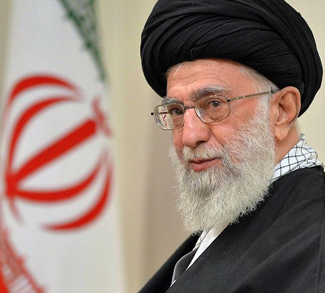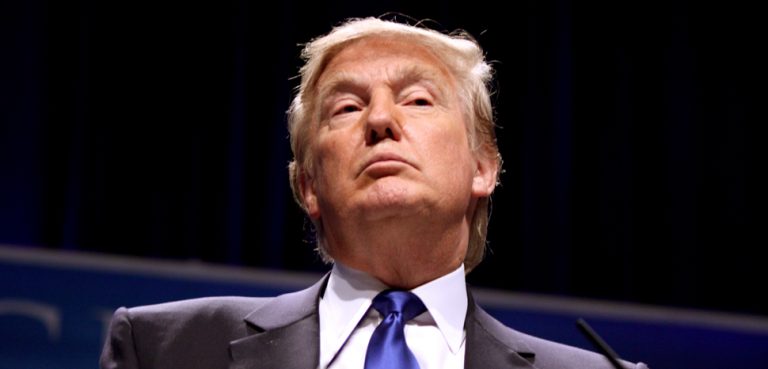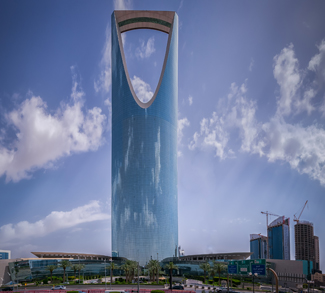Organized by MEPEI (Middle East Political and Economic Institute), a Bucharest-based think-tank, the Embassy of the Islamic Republic of Iran in Romania, and EURISC Foundation, the 4th edition of the Bucharest annual conference on terrorism and the Middle East brought together 200 academics, researchers, officials, and embassy representatives from 14 countries. This year’s conference was called The New Geopolitical Environment and the Middle East: Between Fighting Terrorism and the Future of the Region, and it took place at the beginning of July in Bucharest’s Intercontinental Hotel.
Here are some highlights of the most pertinent policy debates explored at the conference:
“Westerners think of security in the Middle East in terms of oil and Israel. However, we are in a post-globalization world, and the concepts of power, state, and state sovereignty have changed. The security of oil must be replaced with the security of the people,” declared Mostafa Zahrani, adviser to the Minister of Foreign Affairs of Iran, at the beginning of this year’s conference.
Zahrani went on to stress that some threats in the Middle East are more serious than terrorism, such as corruption and the inability of leaders to properly run and organize their states. No one can predict what the future of the region holds for several reasons. For one, only Iran and Turkey are experiencing real development, while the existence of certain disrupting groups, such as the Houthis in Yemen, the Kurds in Iraq, Islamic groups, and finally the more radical groups such as al Nusra and Daesh prevent stability from taking hold across the Middle East. In terms of new elements, Zahrani emphasized that Turkey is a strong new actor in the Middle East and it has become obvious that Saudi Arabia is intervening on many fronts. In terms of old elements, he stated that the US and Israel propagate the notion of Iran as an enemy in order to get support from Arab states. They present conflicts in a sectarian manner, where the Shia-Sunni split is the cause of all problems in the Middle East, but this is not true. In addition, Zahrani believes that Trump has no clear Middle East strategy and his short-sighted focus and whimsical foreign policy prevent him from having a clear picture of what is actually going on in the region.
China is viewed as a new player in the region. Future wars in the Middle East will be a great game between superpowers, assuming that China will be the enemy of the US, and the region’s energy wealth will loom large in their calculations. Russia does not have the military and budgetary potential of China, but Russia is still able to fill the vacuum in the Middle East and wants to be considered on equal footing even though the US often views Russia as a declining power.
Nesriu Kenar, head of the International Relations Department in Turkey’s Sakarya University, echoed the fact that China depends on the oil from the Middle East: 57% of its imported oil currently comes from the region.
Alexander Shumilin, director of the Center for Middle East Conflicts in the Russian Academy of Sciences, pointed to several factors influencing the stability in the Middle East: “Daesh is far from being defeated, Trump’s withdrawal from the JCPOA puts new pressures on Iran, and two antagonistic coalitions continue to operate in the Middle East, one Russia-Assad, another one led by the US against Assad.”
Russia’s aim is to preserve the borders of Syria because it has considerable military and economic interests there. Whether Assad should stay in power or not – that’s up to the Syrians to decide. The Astana process appears to be ineffective at the moment, and it is only a complement to the Geneva peace process which is the best chance for bringing a full political solution to Syria.
Basam Aboabdolah, head of Syria’s Centre for Strategic Studies and adviser to the Syrian information minister, stressed that the war in Syria is a geopolitical conflict funded by foreign powers. Syrian scholars believe that there are a few overriding reasons for the war: Syria’s independence and the desire of certain foreign powers to see Syria collapse, along with Syria’s alliance with Iran and its support for the resistance movements in Palestine and Lebanon. Syria previously opted for an independent foreign policy, and it is now paying the price for that decision. The first coup in Syria took place in 1947 and was financed by the CIA. Colin Powell came to Syria in 2003 and promised President Assad he would become the “king” of the region if he gave up his support for the Palestinians. According to Basam Aboabdolah, Hamad Bin Jassim, the Qatari former prime minister and foreign minister, revealed that $137 million dollars were spent on attempting to destroy Syria. On the subject of terrorism, Aboabdolah pointed to the existence of well-trained armies of multinational terrorists who are acting as mercenaries. There are foreign fighters of 82 nationalities operating in Syria; they have tanks and advanced weaponry, and they receive funds and support from organizations worldwide. Aboabdolah also stressed that international institutions are too weak to fight terrorism and stabilize Syria for a variety of reasons: sanctions against Russia, Iran, and Syria do not allow for cooperation in fighting terrorism, the Arab League is finished, there are doubts about the Organization of Islamic Cooperation, the GCC has collapsed, the UN is an outdated organization set up after the World War II and unfit for purpose in the new world order, and the future of the EU is anything but assured.
Davood Kiani, vice president of the Institute of Iran and Eurasia Studies, elaborated on Russia-Iran relation and Russia’s involvement in the Middle East. He believes the primary goal is that Russia doesn’t want other powers to be able to change the game. According to him, cooperation between Russia-Iran-Turkey managed to remove ISIS from Syria, which was in Russia’s interest. In the beginning, Russia did not pay attention to Saudi Arabia’s concerns, but later on, Russia tried to repair its relations with Saudi Arabia, and the US, in order to gain greater flexibility in its Middle East policy.
Kayhan Barzegar, director of Iran’s Institute for Middle East Strategic Studies, claimed that countries have changed their strategies for combating terrorism due to resource constraints. Iran is not big enough to stay in Syria and establish permanent military bases there. Turkey joined Iran and Russia in the Astana process because it has an interest in preserving security in its neighborhood. Russia wants to maintain the balance of power at regional and global levels. The overall logic is to keep Syria intact and Syrian state bodies operational in order for them to fight terrorism.
Barzegar also stated that Trump’s withdrawal from the Iran nuclear deal diminished Iran’s capacity for dealing with Western countries and resulted in reduced levels of trust. However, Europe is struggling to preserve the deal in order to avoid a conflict between Iran and the US and Israel. For Iran, Europe is important to balance relations with Russia and China. The phrase “Iran’s interference in the region,” which is often used by the media, is wrong, according to Barzegar, because Iran is part of the region and the security of the region is connected to Iran’s security.
Gholamali Chegnizadeh, security expert from the Allameh Tanatabai University in Iran, stressed that fighting terrorism needs a collective model in the Middle East because terrorism will take on new forms, the region will see new realities, and a new regional order is slowly emerging. The discourse of the US changed dramatically from Obama to Trump, demonstrating that the greatest power in the world cannot make up its mind regarding the Middle East.
Naeem Jeenah, president of South Africa’s Middle East-Africa Centre, pointed to the term “terrorist” which, in his opinion, is sometimes used inappropriately by parties to identify the other as an enemy: “In the MENA region, the identification of terrorism has become very useful for various agendas. There is no common international definition of terrorism.”
Liviu Muresan, director of the EURISC Foundation, presented on the strategic importance of Romania’s Serpent Island, which is located in the Black Sea and connected to China’s Belt and Road (BRI) project. He stressed the growing role of Iran in the Chinese project. The Shanghai Institute for International Studies (SIIS), a partner with EURISC Foundation, proposed a China-Iran-Romania project to increase cooperation in the energy sector and along the maritime route by developing facilities that would help facilitate Chinese trade. Romania will host the Three Seas Initiative summit in September 2018, which will analyze the synergies between BRI, the Three Seas Initiative, and the Danube Strategy.
The views expressed in this article are those of the author alone and do not necessarily reflect those of any institutions with which the author is associated, and don’t reflect any official position of Geopoliticalmonitor.com.




